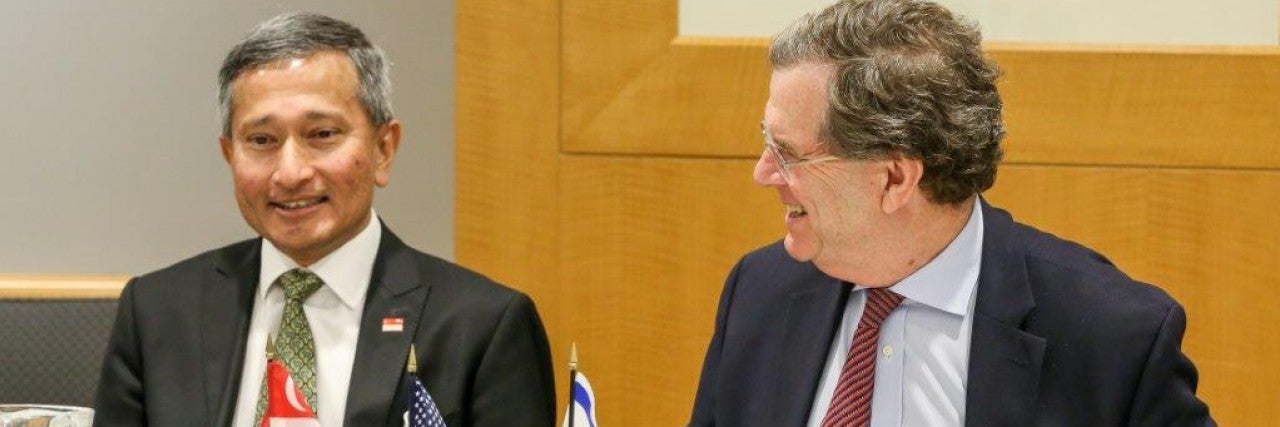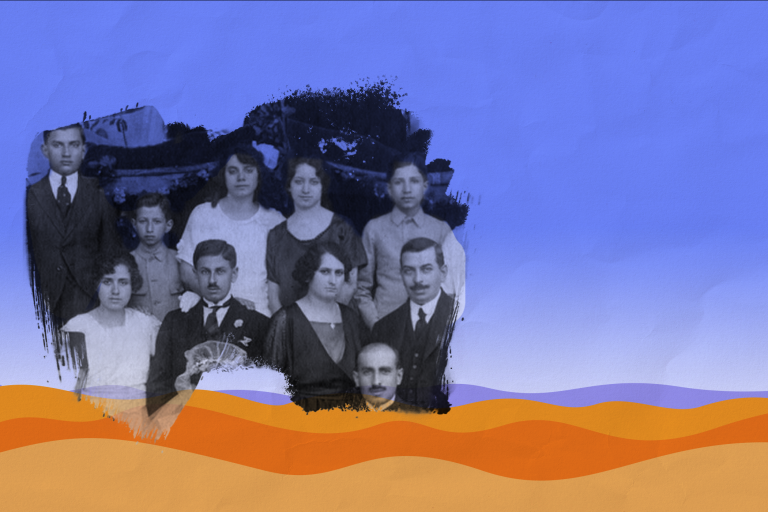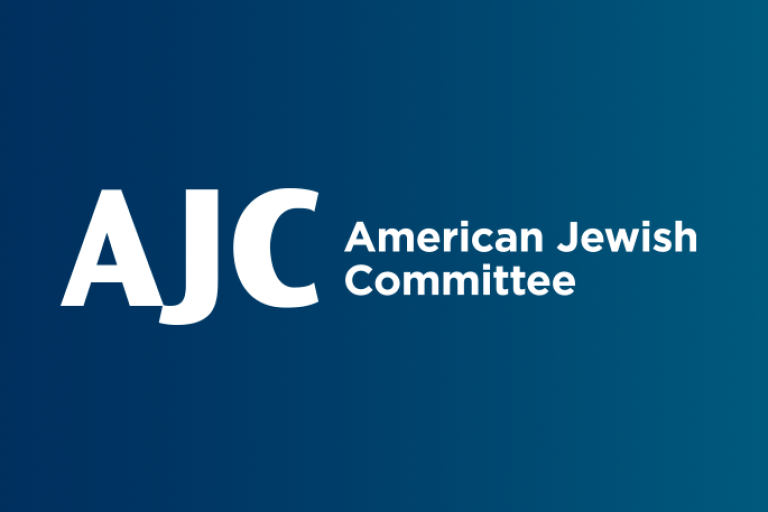October 2, 2019
It’s called a marathon for a reason.
Last week, heads of state and government from more than 80 countries met with AJC leaders on the sidelines of the opening week of the United Nations General Assembly.
In an annual event called the AJC Diplomatic Marathon, AJC met with dignitaries from around the world to discuss the surge of global antisemitism, the dangers of enabling Hezbollah to operate unchecked, the threat from Iran, and opportunities for cooperation with Israel.
“With each passing year, relations deepen, trust is built, formality yields to candor, and the chances for real progress therefore increase,” said AJC CEO David Harris.
The meetings coincide with AJC’s push for the international community, especially the European Union, to ban Hezbollah in its entirety and end the artificial distinction between so-called military and political wings. A full-page ad in The New York Times and a 30-second ad on the major cable news networks in New York reinforced the message to diplomats and visiting world leaders.
The message is clear: Hezbollah is a hybrid terrorist organization that weakens Lebanon, destabilizes the Middle East, and endangers the West. Banning its military wing but recognizing its political wing as a legitimate player in Lebanese politics, as many countries have done, enables it to raise money and recruit on every continent.
“By and large it has triggered a reaction,” Harris said “When it’s done this starkly it’s very hard for the people we’re meeting with to defend this policy.”
AJC also hosted an opening event where it honored Bahraini Foreign Minister Khalid bin Ahmed Al Khalifa with its Architect of Peace Award for the role he has played in efforts to encourage understanding and interfaith cooperation.
Powerful words from #Bahrain’s Foreign Minister:
— David Harris (@DavidHarrisAJC) September 24, 2019
“Israeli-Palestinian conflict can be solved... We’re inspired by peaceful vision of Sadat & King Hussein... They went straight to the Israelis & talked to them... We tell our Palestinian friends: There is no language of silence.” https://t.co/lMscboUD2U
Jason Isaacson, AJC Chief Policy and Public Affairs Officer, who alongside Harris launched the Diplomatic Marathon with four meetings in 1991, said the increasingly positive reception indicates that AJC is seen as a credible interlocutor.
Among the 80 meetings this year, there are more presidents and prime ministers than ever before, including Cypriot President Nicos Anastasiades, Colombian President Iván Duque Márquez, Romanian Prime Minister Viorica Dăncilă, Honduran President Juan Orlando Hernandez, and Portuguese President Marcelo Rebelo de Sousa.
“This has become a fixture on the calendars of many foreign ministries,” Isaacson said.
One of AJC’s biggest diplomatic accomplishments was in 2000. A year after a campaign by AJC to address the unequal treatment of Israel within the UN, the Jewish state was granted membership in the Western European and Others Group, known as WEOG – thereby making it eligible to hold one of ten rotating seats on the UN Security Council. In 2013, Israel’s WEOG membership was extended to Geneva, where the UN Human Rights Council is based.
“We don’t offer them foreign direct investment. We don’t offer them a supportive vote in the UN General Assembly. We don’t threaten them with punitive measures,” Harris said. “If we disagree, NGOs don’t have the same toolkit that states do.”
“AJC is the little diplomatic engine that could,” he added. “We’re not a state and yet states with big agendas and short windows here in New York are carving out time to meet with AJC.”


